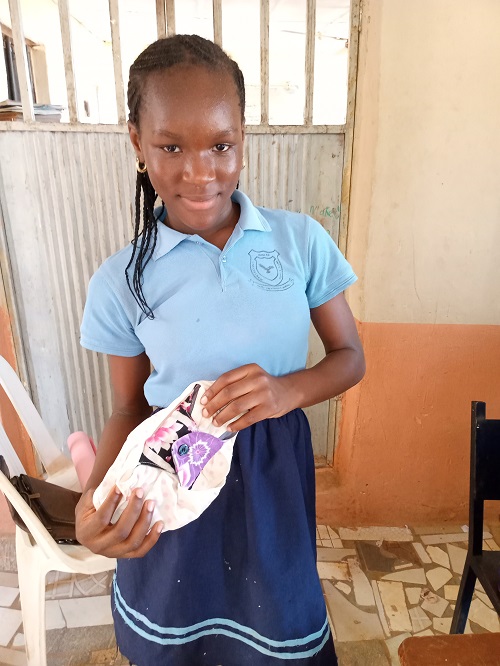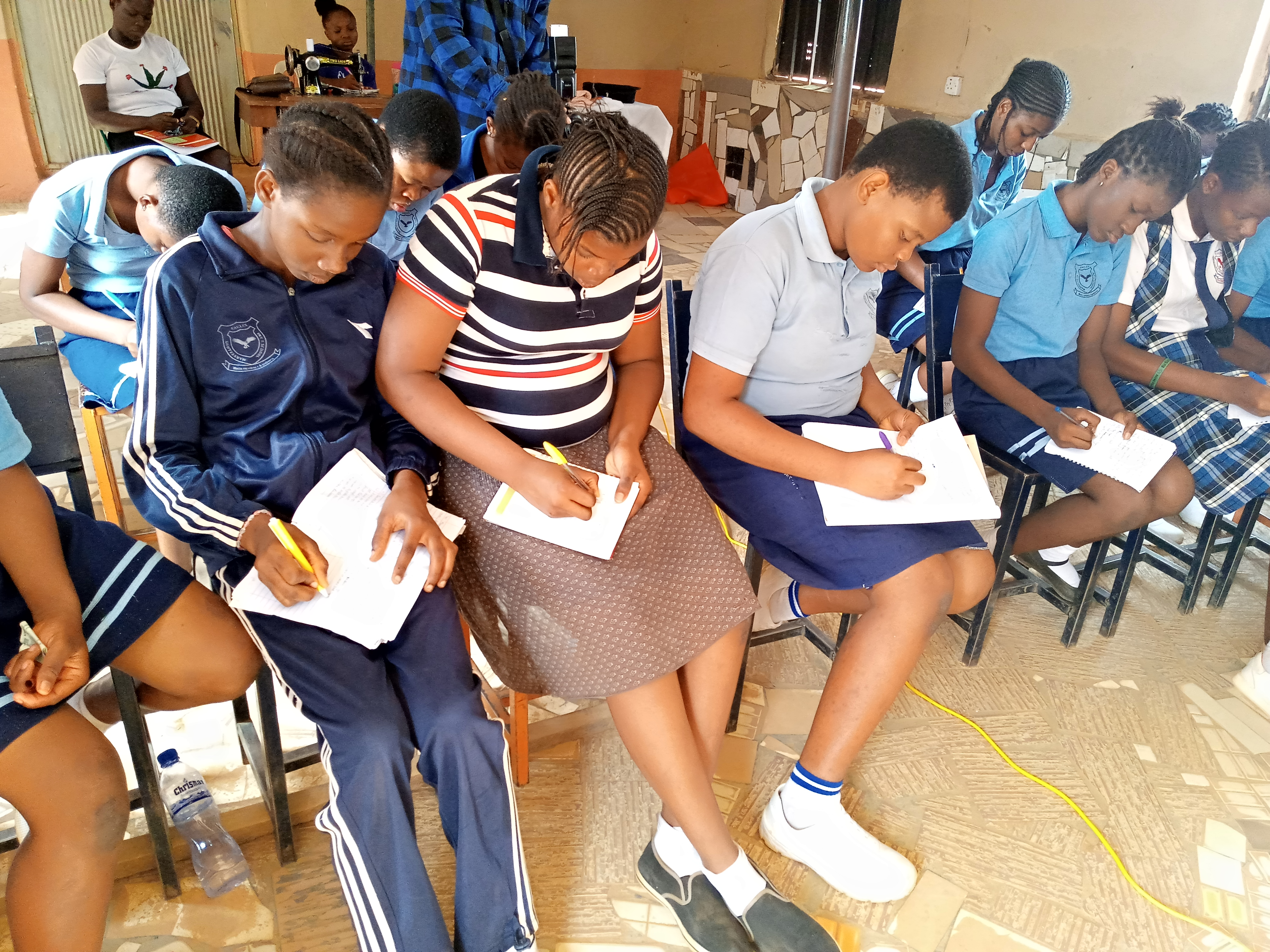Menstruation is a natural biological process. Most girls, from around the age of 12 until middle age, will menstruate every month. Managing this monthly cycle can cause physical and financial challenges for many women and girls in Nigeria. These challenges are compounded by the fact that menstruation is shrouded in secrecy in some parts of the country. Up and down Nigeria, there are many unhelpful myths and taboos surrounding this natural biological process.
Many women and girls do not have access to basic menstrual hygiene materials. Lack of essential materials such as tampons or sanitary pads makes many women and girls dread their period. This makes women feel disempowered and causes girls to frequently miss school.
To help alleviate period poverty in Nigeria, Hope Spring Water developed a new initiative called SuS Pads. The project teaches girls how to make their own reusable menstrual pads from suitable fabrics. According to Bolu Olorunfemi, the project manager for SuS Pads, the rationale behind the initiative was to equip girls with the skills and knowledge they need to avoid period poverty. If you have the skills to make your own reusable sanitary pads, you will have a hitch-free period every month.

The initiative had its first workshop on November 20, 2019 at Marvelous Eagle School Apo Village, Abuja. Working with over 20 girls from the school, Bolu Olorunfemi and her team of one seamstress and four volunteers imparted the girls with crucial skills. The workshop started with a short lecture about menstrual hygiene management. It then addressed the practical aspect of sketching out, measuring and cutting fabrics into the shape of menstrual hygiene pads. The girls were then shown how to sew the pads using sewing machines.

Celena Daniel, a student of Marvelous Eagle School, spoke about the workshop’s impact: “during menstruation I stay at home to avoid shame as I experience stains on my clothes. This training enabled me to learn how to take care of myself. I am also glad that I learnt to make a reusable menstrual pad that does not cost much. I am confident that I can teach my loved ones how to make their own pads.” Another student Nnaji Bridget said the workshop helped a great deal as she will be able to save money instead of buying disposable pads every month.
Bolu Olorunfemi compared the SuS Pads initiative with Hope Spring’s previous menstrual hygiene workshops where school girls were given disposable pads. She said: “A popular adage goes: ‘give a woman a fish and you feed her for a day. Teach a woman how to fish and you feed her for a lifetime.’ Instead of gifting the girls disposable menstrual pads, it is more empowering to teach them how to make reusable menstrual pads that will last for years.” Bolu and her team aim to empower more women and girls by teaching them how to make their own reusable pads.
Demola Oriyomi Ojo is a sustainable development advocate and volunteer with SuS Pads & Hope Spring.